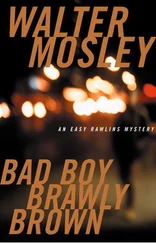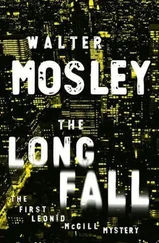“That the way he got inside the man’s soul made the man happy to be losing just his business.”
Thomas thought about his lost cart then. He wondered if Kronin Stark had ever pushed anybody out of that fancy hotel and into the street.
“Do you love Eric?” Thomas asked, still thinking about pushing that cart.
Raela turned to Thomas, taking a moment for her eyes to settle. Then her brow furrowed.
Thomas liked the way she took her time. It was as if she knew there was no hurry. Sometimes it took a while to say something.
“I don’t know,” she said at last. “I mean, when I see him I think, ‘There’s Eric. I know him from inside his core to his skin.’ I think, ‘I need his warmth in my bed.’ Is that love?”
“Does he make you want to giggle and laugh out loud?”
“When I see him with you he does,” she said with no hesitation. “Seeing you and him together makes me happy.”
Working at the Rib Joint was a joy for Thomas Beerman. Minas gave him a ride to the restaurant every morning, and Thomas took the Wilshire bus back home at night.
Smoking the ribs, sausages, slabs of beef, and other exotic meats was a seven-man job (even though three of those men were women). They had to prepare the meat by cutting it into the proper portions, marinate it for twenty-four hours, and then smoke it in the twelve big metal cans out in the yard. They smoked beef, pork, and chicken, and wild game like venison and boar. They smoked homemade, hand-stuffed sausages. Miranda Braithwaite made the sauce and marinated the meats the way Ira had taught her. Ben Tallman and Parker Todd used brushes to baste the meat and turn it from time to time. Thomas Grant and Penelope Sargent prepared the orders and prepped for the others when they weren’t busy. There was a sixth man, Bishop Ladderman, who carved the meat and carried the orders into the kitchen for Ira to finish off and for the waitresses to deliver.
Three times a week Thomas talked on the phone to Clea in New York. He half expected her to start dating the law student Brad again. She did see him from time to time, she said, but only as a friend.
“He’s got another girlfriend now,” she said. “She’s preparing to study law like him, and they’re very happy.”
Love flourished in the long talks they had via cell phone.
“I never knew anybody who thinks as deeply as you,” she would say. “It’s like you were a thousand years old and had the time to wonder about everything in the world.”
Thomas liked having her to talk to. He even planned to take a flight to New York on his first three-day weekend, which would come in three months. By then he would have saved the money.
Clea had said that she loved him over the phone.
On his days off Thomas visited Raela and Eric at the Tennyson. They had moved in together, and he was back in school. Thomas babysat for Mona when Raela and his brother went out, and he talked late into the night with Eric when the two came home from their date.
“So you’re not gonna work for Stark?” Thomas asked Eric one such late evening.
Raela was asleep with Mona in her bed because the child still had bad dreams about her mother’s murder. That’s why Mona liked to have Thomas babysit for her — the child was convinced that he could always save her if something bad happened.
“No,” Eric said. “Raela doesn’t want me to. She doesn’t trust him, but I think he’s just trying to keep his family together. We go over there at least once a week for dinner.”
“I don’t like him.”
“I know. But I’m not scared. I mean, what could he do to me?”
Thomas gazed at his brother and smiled.
“What are you smilin’ at?” Eric asked.
“For a while there I didn’t think that anything would ever work for me,” Thomas said. “I mean, I couldn’t even get it together to buy a new pair of shoes. I couldn’t even stop my feet from bleedin’ through the holes in my soles.”
“I guess we are lucky like you told me, huh?” Eric said.
“Maybe so.”
One afternoon Thomas put on a pair of black cotton pants and a blue Hawaiian T-shirt that Raela had helped him pick out at a store in West Hollywood. He had on black sandals with no socks and a short-brimmed straw hat to keep the sun out of his eyes. Wearing this ensemble, he took four buses down to Compton and knocked on Harold and Monique’s door. Lily answered.
“Uncle Lucky, is that you?”
He picked up the chunky girl and kissed her cheek. Monique came up and kissed her childhood friend on the mouth. Thomas worried that Harold would get mad about that, but he just shook Thomas’s hand and said, “You look good, homeboy. Come on in.”
Thomas started reading books from the shelf at Minas Nolan’s house. It really didn’t matter what he read: science fiction, biography, technical manuals, or general fiction — all of it served the purpose of telling him something, anything. He didn’t retain much of the knowledge he perused; he didn’t expect to collect ideas but merely to be exposed to them.
“What are you reading, son?” Minas would ask when he came upon Thomas in the library hunched over some book.
“Gray’s Anatomy,” he said one day.
“Are you interested in human anatomy?”
“It’s so pretty,” Thomas replied. “I saw this guy cut open once in Tremont’s alley. He stole from Tremont and got his arm cut open. I could see the muscles hangin’ outta his arm. They didn’t look all neat like they do here in this book. In this book it looks nice and, and pretty.”
“Those experiences you had must have been awful,” Minas said.
“It must have been,” Thomas agreed. “But it’s like somebody else’s life when I think about it. I mean, I know that I was there, but it feels like I always been here and those things I did are like a book.”
Thomas held up the anatomy text and shook his head.
Minas wondered if he understood what the boy was saying. Later that night, when he went to bed, he decided that Thomas had become as deep and unfathomable as his mother.
Bishop Ladderman was offered a job as an assistant chef in a fancy Brentwood restaurant, and so he left the Rib Joint. It was quite a surprise. Bishop wasn’t looking for a job, but one day he got a call from Chez Vivienne’s owner, Raoul Mantou. Mr. Mantou said that he’d heard a lot about Bishop and that he wanted him in his kitchen. He offered seventy-five thousand dollars a year, twice what any cook got at Fontanot’s, and so Bishop had to go.
Michael Cotter was hired to take Bishop’s place.
Michael was different from the other smokers. Miranda, Ben, Parker, Penelope, and Thomas Grant were all in their late fifties up to sixty. Bishop was that age too. And even though Thomas was only twenty, he had what Fontanot called an old soul, and because of his scars and limp he seemed more like one of the older workers.
Cotter was young, not quite thirty, and handsome, black as glowing tar and lithe like a panther. He was always laughing and quick to lend a hand. The waitresses from the restaurant would come out to the yard just to look at him when he’d take his shirt off to move the heavy metal smokers or large bundles of meat.
Cotter got along with everybody. He and Thomas became fast friends.
One day, after his first few weeks on the job, Michael offered to drive Thomas home. Thomas took the ride because he liked to hear Michael’s tales about the streets. They were different streets from those Thomas had inhabited. Michael told stories about tough men and fine women that loved and fought in the clubs and bars. Thomas knew what happened outside, and Michael knew what went on indoors.
“So you stayed in that alley and didn’t evah go to school?” Cotter asked on that first day he gave Thomas a ride.
Читать дальше












